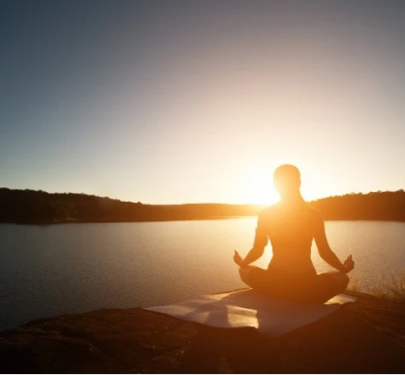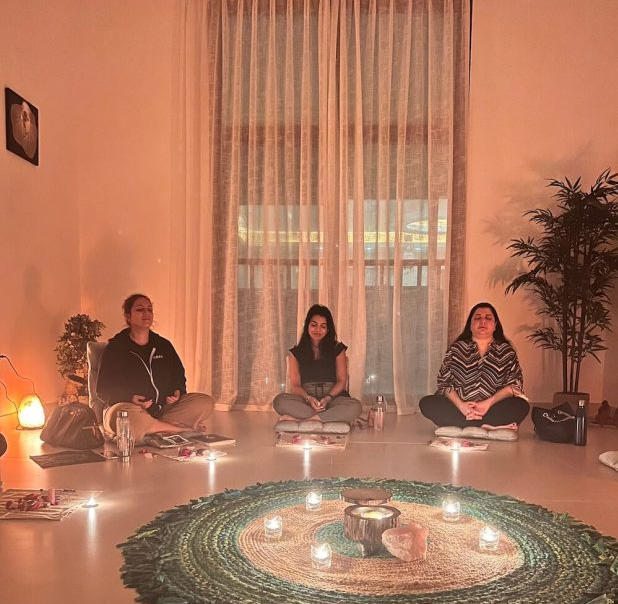Understanding the basics of meditation
Meditation is a practice of training the mind to focus and achieve a state of calmness and relaxation. It has been around for thousands of years and is a part of many cultures and religions. The practice involves focusing on a specific object, sound, or mantra, and observing one’s thoughts without judgment. The goal of meditation is to increase self-awareness, reduce stress, and promote inner peace.
There are many benefits of meditation, including reduced anxiety and depression, improved sleep, increased focus and concentration, and enhanced overall well-being. Meditation has also been shown to reduce blood pressure, improve immune function, and decrease inflammation in the body.
Types of meditation techniques
There are many different types of meditation techniques, each with its own unique approach and benefits. Some of the most popular types of meditation include:
Mindfulness meditation
Mindfulness meditation is a type of meditation that involves focusing on the present moment and observing one’s thoughts without judgment. The practice involves paying attention to the breath, body sensations, and external stimuli, and becoming aware of one’s thoughts as they arise.
Transcendental meditation
Transcendental meditation is a type of meditation that involves repeating a mantra in a specific way to quiet the mind and achieve a state of deep relaxation. The practice is typically done for 20 minutes twice a day, and is said to reduce stress and promote inner peace.
Loving-kindness meditation
Loving-kindness meditation is a type of meditation that involves focusing on sending love and kindness to oneself and others. The practice involves repeating phrases such as “may I be happy, may I be healthy, may I be safe,” and extending those wishes to others.
Yoga meditation
Yoga meditation is a type of meditation that involves combining physical postures (asanas) with breathing techniques (pranayama) to achieve a state of relaxation and inner peace. The practice is often done in a group setting, and can be a great way to improve flexibility and reduce stress.
Tips to start your meditation practice
Starting a meditation practice can be challenging, especially if you’re new to the practice. Here are some tips to help you get started:
Start small
Start with just a few minutes of meditation per day and gradually increase the time as you become more comfortable with the practice. Even just a few minutes of meditation each day can have a positive impact on your overall well-being.
Find a quiet space
Find a quiet space where you can meditate without distraction. This could be a spare room in your house, a quiet park, or even your car.
Use guided meditations
Guided meditations can be a great way to start your meditation practice. There are many apps and websites that offer guided meditations for free, which can help you stay focused and relaxed.
Be patient
Meditation is a practice, and it takes time to develop the skill. Be patient with yourself and don’t get discouraged if you find it challenging at first.
Overcoming common meditation challenges
Meditation can be challenging, and there are a few common challenges that people often face when starting a meditation practice. Here are some tips to help you overcome these challenges:
Restlessness
If you find yourself feeling restless or fidgety during your meditation practice, try focusing on your breath or repeating a mantra to help calm your mind.
Boredom
If you find yourself getting bored during your meditation practice, try switching up your technique or trying a different type of meditation.
Distractions
If you find that external distractions are disrupting your meditation practice, try finding a quieter space or using earplugs to block out noise.
Incorporating meditation into your daily routine
Incorporating meditation into your daily routine can be a great way to reduce stress and improve your overall well-being. Here are some tips to help you make meditation a part of your daily routine:
Set a regular time
Set aside a specific time each day for your meditation practice. This could be first thing in the morning, during your lunch break, or before bed.
Make it a habit
Make meditation a habit by incorporating it into your daily routine. Start with just a few minutes of meditation each day and gradually increase the time.
Be consistent
Consistency is key when it comes to meditation. Try to meditate at the same time each day to help make it a habit.
Conclusion
Meditation is a powerful tool that can help us find inner peace, reduce stress, and improve our overall well-being. Whether you’re new to meditation or a seasoned practitioner, there are many different techniques and tips that can help you get the most out of your practice. So, take some time for yourself, find a quiet space, and give meditation a try at Hub of Consciousness. You might be surprised at just how much it can change your life.


